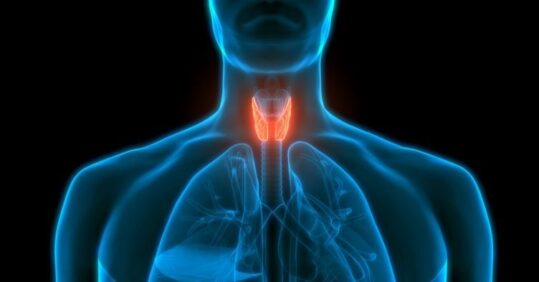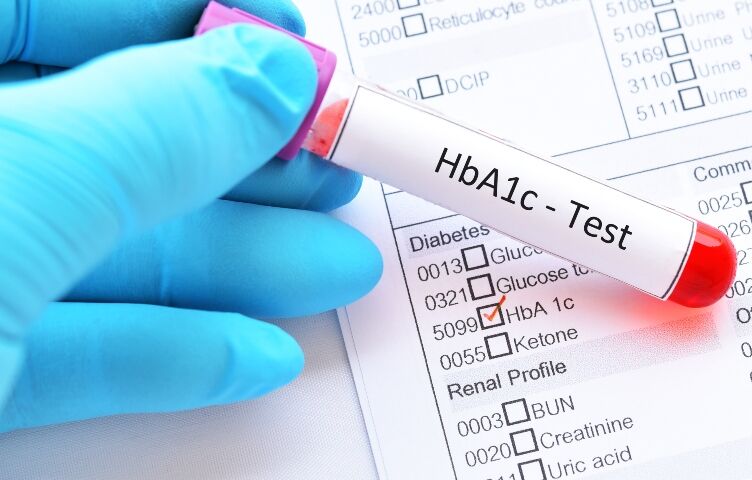GP Dr Roger Henderson advises on what practice nurses need to consider when reviewing patients with either suspected or established hypothyroidism
Hypothyroidism affects up to 2% of the UK population with many cases remaining undiagnosed. It can have a significant impact on the quality of life in those affected by it unless adequately treated and corrected, and practice nurses need to have a good working knowledge of its symptoms and management.
Learning objectives
By the end of this module, you will have a greater understanding of:
- The causes of different types of hypothyroidism
- Hypothyroidism signs and symptoms and how to investigate possible hypothyroidism
- Possible differential diagnoses
- How to treat confirmed hypothyroidism including dosage adjustment schedules
- The prognosis for patients with hypothyroidism
What is hypothyroidism?
Hypothyroidism is a clinical state resulting from underproduction of the thyroid hormones thyroxine (T4) and triiodothyronine (T3). Most cases are due to failure of the thyroid gland to produce sufficient thyroid hormones in response to thyroid stimulating hormone (TSH), a condition known as primary hypothyroidism. As TSH levels increase to try to correct the low thyroid hormone levels, this results in abnormally high TSH levels in combination with low T3 and T4.1 Secondary hypothyroidism is caused by underproduction of TSH by the pituitary gland. Sub-clinical hypothyroidism can also occur, which is usually asymptomatic and has only a minimally increased level of TSH and normal levels of T4 and T3.2
The main thyroid function tests (TFTs) used to diagnose hypothyroidism are: TSH and free (available) T4 (FT4). Box 1 summarises the key TFT abnormalities in primary hypothyroidism (overt and subclinical) and secondary hypothyroidism.
Box 1. Hypothyroidism – TFT abnormalities3
Primary hypothyroidism
- Overt hypothyroidism: TSH levels above normal, FT4 below normal
- Subclinical hypothyroidism: TSH levels slightly raised, FT4 within normal range
Secondary hypothyroidism
- TSH levels below normal, FT4 below normal.
The prevalence of treated hypothyroidism in the UK is projected to be 2.9million by 2025, and it is 10 times more common in women than men. Other risk factors include family history, obesity, being white and the menopause.1 Subclinical hypothyroidism is found in 5-10% of the population and increases with increasing age.2
Across the world, the most common cause of hypothyroidism is dietary iodine deficiency but in an iodine-rich country such as the UK the usual causes are increasing age and autoimmune thyroiditis.4,5 Less commonly, primary hypothyroidism can be caused by damage to the thyroid gland from treatments such as radioactive iodine therapy, or radiotherapy for head and neck cancer.5 Drugs that can cause hypothyroidism include lithium – which interferes with thyroid hormone production and release – and amiodarone, which contains iodine and interferes with thyroid hormone production.
Differential diagnoses
Remember there are multiple conditions which may present similarly to hypothyroidism and that there are many non-thyroidal conditions that can lead to abnormal thyroid function tests.6 Examples of these include type 1 diabetes, Addison’s disease, coeliac disease, and rheumatoid arthritis. In older people, symptoms of dementia may be very similar to those of hypothyroidism, as can post-viral syndromes (including long Covid), chronic fatigue and fibromyalgia. In menopausal women, symptoms may be assumed to be due to menopausal rather than due to thyroid dysfunction, and the relatively common condition obstructive sleep apnoea may also not be considered as a cause of the symptoms unless specifically asked about.
Find this module
To complete the full module and log 1.5 CPD hours visit the Nursing in Practice 365 website.
Not a Nursing in Practice 365 subscriber? Register for free or gain access to more CPD content as a Premium member.
Dr Roger Henderson is a senior GP based in Scotland







